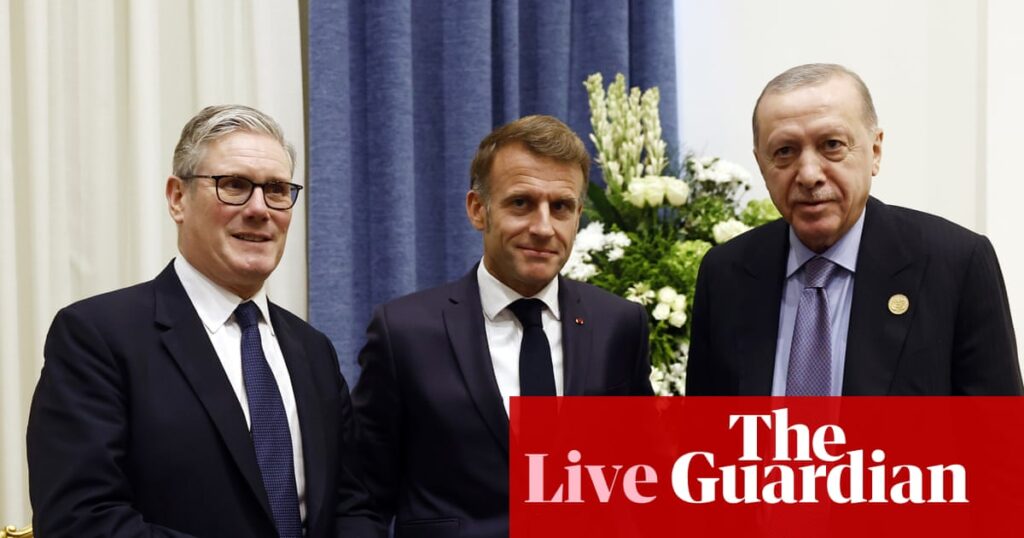
President Emmanuel Macron has pointed fingers at his political adversaries for exacerbating unrest and destabilizing his administration, as France navigates one of its most significant political crises in recent years. Speaking from Egypt, where he attended the Gaza peace summit, Macron accused parliamentary forces of creating a “sense of disorder” by ousting former Prime Minister François Bayrou and attempting to destabilize his successor, Sébastien Lecornu.
“The political forces in parliament which voted out François Bayrou and those that sought to destabilize Sébastien Lecornu are solely responsible for this sense of disorder,” Macron stated. He emphasized the importance of France projecting stability and strength, asserting, “It is everyone’s duty to work towards stability, not gamble on instability.”
Political Showdown in the National Assembly
The ongoing political crisis has led to heightened tensions within the French National Assembly. As the assembly braces for a showdown over Sébastien Lecornu’s newly appointed government, there have been fresh calls for its dissolution. National Assembly President Yaël Braun-Pivet has urged for “calm and constructive debate,” though her plea has been overshadowed by a series of no-confidence motions and political recriminations.
In a rare alliance, Marine Le Pen and far-right leader Éric Ciotti submitted a joint motion of censure, describing the situation as “an unprecedented political crisis.” They urged Macron to dissolve parliament, citing it as “the most effective and democratic way to lead our country out of the deadlock.”
Opposition Voices and Accusations
Mathilde Panot, leader of the left-wing France Unbowed (LFI), announced her party’s filing of a no-confidence motion intended to topple Lecornu’s government. “The country has no time to lose. Lecornu will fall and Macron will follow,” she declared. Meanwhile, far-right National Rally leader Jordan Bardella accused the Socialist Party of striking “backroom deals” with the government to avoid supporting a no-confidence vote.
“The PS must come out of the shadows. Are they with Emmanuel Macron or are they in opposition? This is the moment of truth,” Bardella asserted.
International and Domestic Developments
As France grapples with its internal political turmoil, international developments continue to unfold. Ukrainian President Volodymyr Zelenskyy praised the “extraordinary” Gaza ceasefire, expressing hope for a similar resolution in Ukraine. “If a ceasefire and peace have been achieved for the Middle East, the leadership and determination of global actors can certainly work for us too, in Ukraine,” Zelenskyy remarked.
Domestically, France faces economic challenges, with its wheat stockpile reaching its largest in two decades due to reduced demand from Algeria and China. This surplus has driven wheat prices to five-year lows, impacting French farmers already pressured by cheaper Eastern European competitors.
Looking Ahead
The political crisis in France shows no signs of abating, with the National Assembly poised for further confrontations. The implications of this instability could have far-reaching consequences for Macron’s administration and France’s international standing. As the government navigates these turbulent waters, the call for stability and unity remains a pressing concern.
Meanwhile, the broader European context reflects similar tensions, as seen in Portugal’s recent municipal elections where the far-right Chega party suffered a significant setback. These political dynamics underscore the shifting landscape within Europe, where traditional alliances and power structures are increasingly being challenged.
As the situation unfolds, all eyes will remain on France’s political leaders and their ability to steer the nation through this period of uncertainty.





